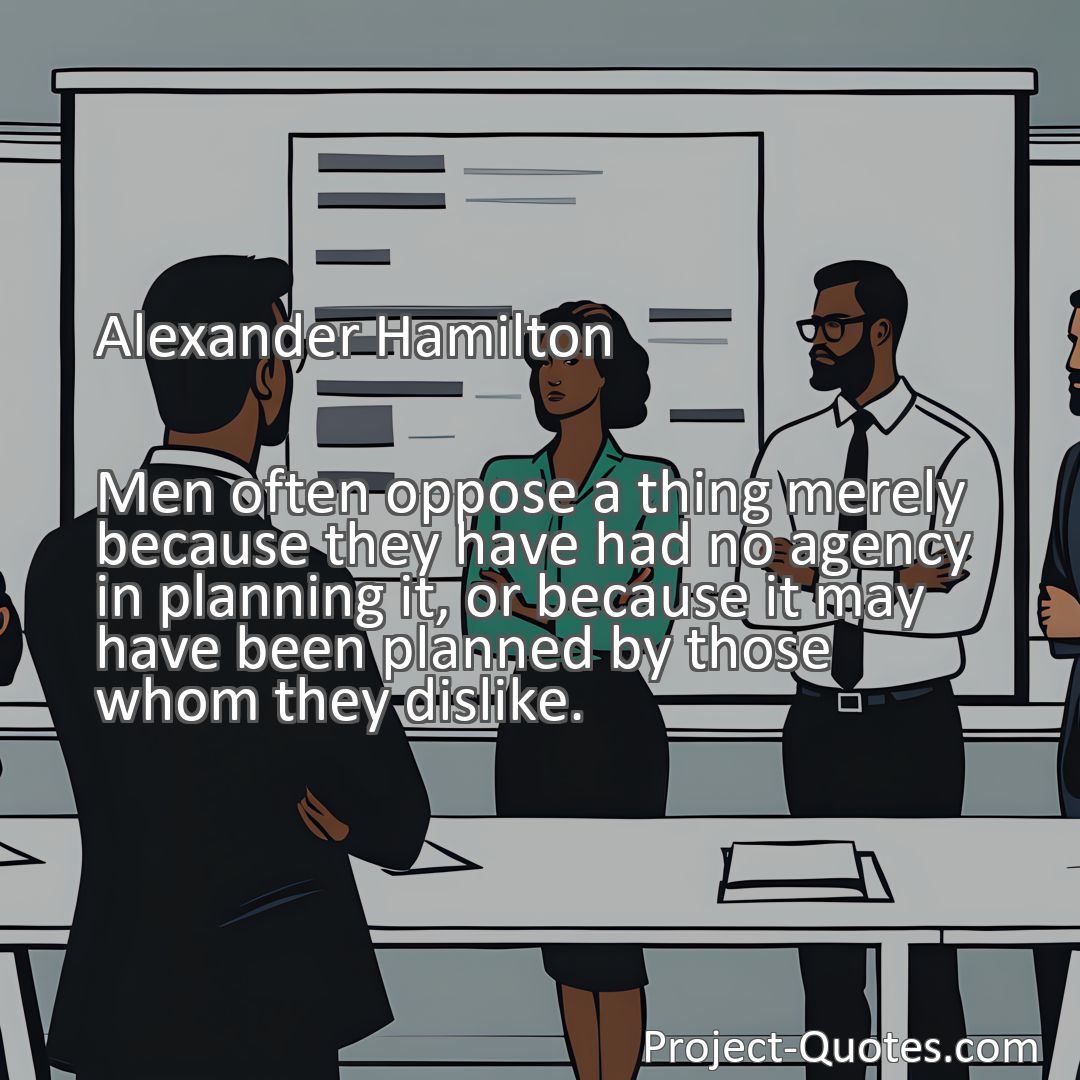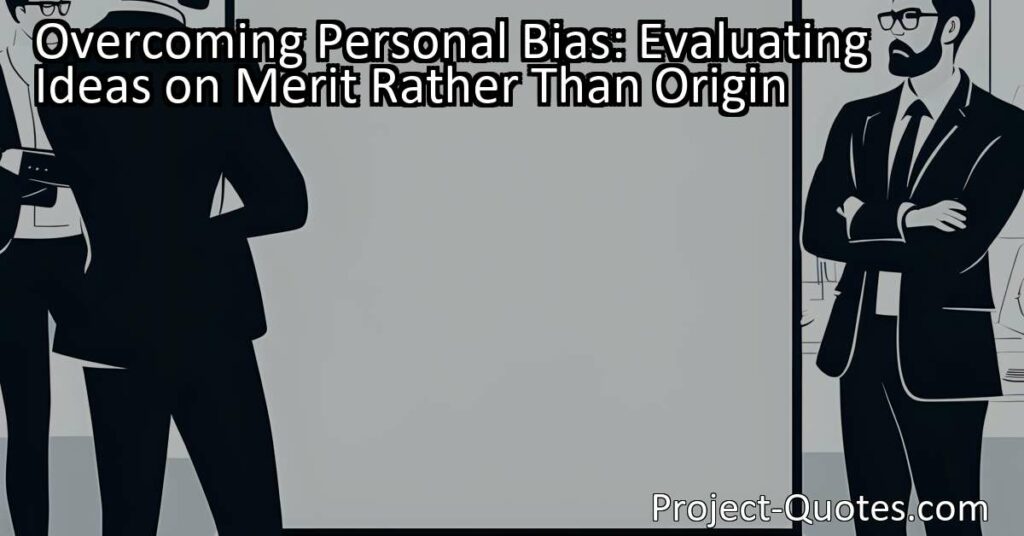Men often oppose a thing merely because they have had no agency in planning it, or because it may have been planned by those whom they dislike.
Alexander Hamilton
Discovering Merit: Overcoming Personal Biases to Embrace New Ideas. Alexander Hamilton’s quote explores how people often dismiss ideas based on personal biases or exclusion from the planning process. By approaching ideas with an open mind, evaluating them on their own merit, and separating personal feelings from practical considerations, we can foster a more inclusive and collaborative society that embraces new ideas and fosters positive change. Don’t let personal bias lead to missed opportunities.
Table of Contents
- 1 Men often oppose a thing merely because they have had no agency in planning it, or because it may have been planned by those whom they dislike.
- 2 Alexander Hamilton
- 3 Meaning of Quote – Men often oppose a thing merely because they have had no agency in planning it, or because it may have been planned by those whom they dislike.
- 4 Freely Shareable Quote Image
- 5 Related
Meaning of Quote – Men often oppose a thing merely because they have had no agency in planning it, or because it may have been planned by those whom they dislike.
Have you ever noticed that sometimes people automatically reject an idea or oppose something just because they had no say in planning it? Or maybe it’s because the idea came from someone they have a personal dislike for? This tendency to oppose things without proper consideration or understanding is something that Alexander Hamilton, an influential American statesman and one of the Founding Fathers of the United States, brings to light in his quote.
In our everyday lives, we often come across situations where people’s knee-jerk reaction is to reject something simply because they were not involved in the planning process. Whether it’s a decision made in school, within a community, or even on a larger scale, like a government policy, some individuals tend to harbor resentment or opposition when they are excluded from the planning stage. Hamilton suggests that this rejection is not based on any rational judgment or evaluation of the idea itself but rather stems from a feeling of being left out.
When we feel excluded or overlooked, it can be natural to develop negative emotions towards the idea or the people behind it. We might harbor feelings of resentment, jealousy, or even suspicion, believing that those who were involved in the planning must have ulterior motives or hidden agendas. It’s easier to dismiss something outright rather than invest the effort to understand it fully. This instinctual response often prevents us from objectively examining the merits and potential benefits of the idea.
However, Hamilton argues that we should not let personal biases or the feeling of being left out cloud our judgment. Instead of outright opposition, we should approach new ideas with an open mind and consider their merits based on their own characteristics, rather than who initiated them. By doing so, we can avoid falling into the trap of dismissing something potentially worthwhile simply due to our personal biases.
Moreover, Hamilton highlights the role that personal animosity can play in fueling opposition. People with political or personal vendettas against certain individuals might reflexively reject any ideas that originate from them. Regardless of the merits of those ideas, personal dislike distorts judgment and creates an additional roadblock for rational decision-making.
This tendency to reject an idea or plan due to personal dislike not only hinders progress but also perpetuates divisions within communities. It creates an “us versus them” mentality that prevents constructive dialogue and collaboration. Instead of working together, people become entrenched in their positions, unwilling to listen or consider alternative viewpoints solely because they come from a disliked source.
It’s essential to recognize that personal feelings should not overshadow the value of potential new ideas or initiatives. Regardless of our opinions about specific individuals, we should judge ideas on their own merit and evaluate them objectively. By doing so, we can separate the personal from the practical and contribute to a more open and inclusive society.
In order to counteract this knee-jerk tendency to oppose based on personal biases, it’s crucial to cultivate a mindset of open-mindedness and intellectual curiosity. We should actively seek out different perspectives and engage in discussions that challenge our own beliefs. When faced with an idea or plan that we didn’t have agency in planning, we should make an effort to understand the rationale behind it and evaluate it on its own merits.
Furthermore, it’s important for those in positions of power or influence to ensure that the planning process is as inclusive and transparent as possible. By involving a diverse range of stakeholders, we can minimize the feeling of exclusion and prevent knee-jerk opposition. Inclusive planning allows for a broader range of perspectives, leading to more well-rounded and effective ideas.
In conclusion, Alexander Hamilton’s quote resonates with a common tendency among people to oppose ideas simply because they were not involved in the planning or because they dislike the individuals behind them. However, this automatic opposition based on personal biases hinders progress, perpetuates divisions, and prevents constructive dialogue. Instead, it is crucial to approach ideas with an open mind, evaluate them on their own merit, and separate personal feelings from practical considerations. By doing so, we can create a more inclusive and collaborative society that embraces new ideas and fosters positive change.
I hope this quote inspired image brings you hope and peace. Share it with someone who needs it today!


